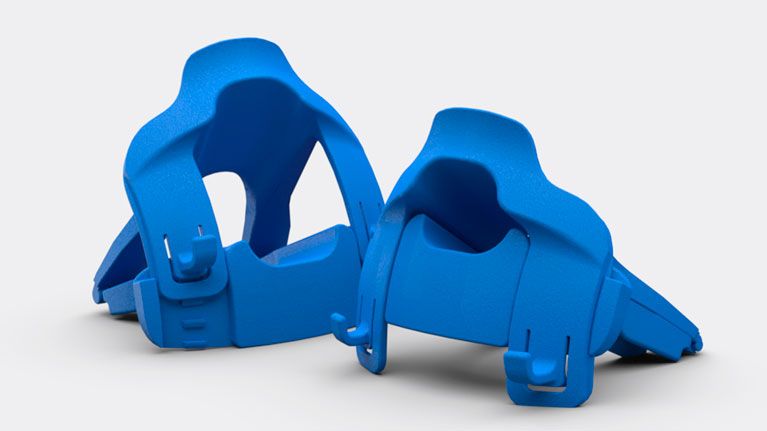The MIT selects two of IK4-TEKNIKER´s biosanitary research projects
Two research projects in which the Basque technology centre has been involved have formed part of several editions of the mentoring programme delivered by the Massachusetts Technology Institute (MIT) and Fundación FIPSE Foundation.

The development of a device to facilitate endoscopies and produce a sensor capable of detecting tumour cells in blood are two of the projects in which the IK4-TEKNIKER Basque technology centre has been involved in the last two editions of the International Mentoring Programme delivered by the Massachusetts Technology Institute (MIT) and Spain´s Fundación para la Innovación y la Prospectiva en Salud en España (FIPSE).
Both bio-sanitary research projects, protected by patents and for which the technology centre has contributed its scientific expertise, have joined other initiatives led by several Spanish hospitals to form part of several editions of the programme that have been held in the last three years in collaboration with more than 20 mentors from the MIT environment, from the Harvard Medical School and the Massachusetts business and financial sectors.
Santos Merino, an IK4-TEKNIKER researcher, says that the fact of "having been chosen to participate in this programme is very relevant for us as it means that we have been recognised by FIPSE and MIT. Moreover, they´ve given us the opportunity to work in MIT´s IDEA2 Global programme together with other leading mentors in the field of biomedical research and innovation with an outstanding international track record with regard to developing devices, establishing start-ups, searching for sources of funding and contacting with private investors or investment groups.
Specifically, the technology centre was selected in the third edition of the programme that closed last December with a presentation covering the development of a prototype of a nanoplasmonic sensor used to detect tumour cells in the blood of patients with cancer. The ultimate aim of this development is to monitor cancer patients more efficiently by delivering information quickly through a blood sample that describes the outcome of the therapies used and the extent to which the disease has progressed.
These tests are usually carried out with imaging techniques or tumour tissue biopsies. The aim of this development is to make further progress with regard to new non-invasive diagnostic techniques such as liquid biopsies. The ultimate goal consists in being able to use a simple blood sample that can detect tumour cells circulating in the blood and monitor the disease more frequently and with less discomfort for the patient.
With regard to this case in point, IK4-TEKNIKER is responsible for manufacturing the microfluidics and nano-structured gold films which, when illuminated, produce the plasmonic effect that makes it possible to detect and count cells on a surface. The technology centre has also collaborated in the design of the optical mounting, led by the University of Cantabria and in the capture and functionalisation of surfaces developed by the Marqués de Valdecilla University Hospital. Said hospital is also directing work based on laboratory-grown cancer cell lines and cancer cells taken from patients.
Another initiative that forms part of the MIT programme and in which IK4-TEKNIKER has been involved consists in developing a device for clinical use and anaesthesia to protect the teeth and lips of patients in addition to medical instruments for interventions in which they must enter via the oral cavity to reach the digestive tract and the lower airway under sedation or local anaesthesia.
The aim of this project that formed part of the second edition of the programme was to facilitate endoscopies, gastric reduction procedures, fibrobronchoscopies, transesophageal ecocardiograms, ENT and maxillofacial surgery and orotracheal intubation.
Several 3D printing technologies have been used for the prototyping due to their high degree of versatility and competitiveness whenever complex geometries have to be manufactured and materials must be certified for health care use. Once the final geometry has been fully defined, the aim is to use injection moulding and eventually move into the industrialisation phase.
This device has been developed in collaboration with doctors and inventors that form part of anaesthetists teams working at the Gregorio Marañón Hospital in Madrid.
The International Mentoring programme developed by MIT and FIPSE via the IDEA2 Global programme has involved more than 20 mentors from MIT, the Harvard Medical School and the Massachusetts business and financial sector.
The ultimate goal of this experience is to support the most innovative biomedical technologies so they can be transformed into advanced solutions that can be applied to real treatment and healthcare situations.
